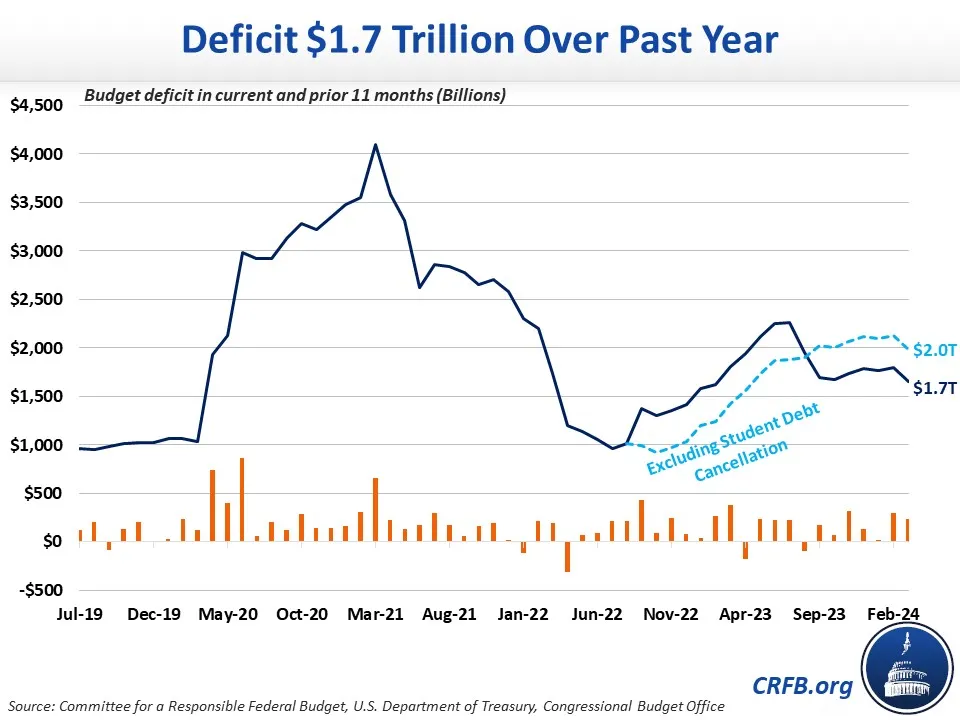Deficit Was $1.7 Trillion Over Past Year
The federal budget deficit totaled $1.7 trillion over the past 12 months, down $142 billion from the 12-month period ending in February and down $37 billion from the Fiscal Year (FY) 2023 deficit of $1.7 trillion. The deficit in March 2024 was $236 billion, compared to $378 billion last March – lower partly due to timing shifts. The following is an updated analysis of the rolling deficit, incorporating the latest data from the Congressional Budget Office (CBO). Removing the effects of student debt cancellation, which was ruled illegal, the rolling deficit was $2.0 trillion. As a share of the economy, the deficit was roughly 6.0 percent of Gross Domestic Product (GDP), or 7.2 percent excluding student debt effects.
Compared to the 12-month period ending March 2023, nominal spending is down 5.9 percent to $6.2 trillion due to the changes in student debt cancellation and revenue is down 5.0 percent to $4.6 trillion as the 2022 revenue surge winds down. Spending was roughly 22.6 percent of GDP and revenue 16.6 percent of GDP.

Deficits are projected to reach $2.6 trillion by 2034 while debt will grow from 97 percent of GDP in FY 2023 – twice the 50-year historical average of 48 percent – to a record 106 percent of GDP by 2028. Policymakers should work together to bring spending and revenue in line and get the economy and our fiscal health back on track.

